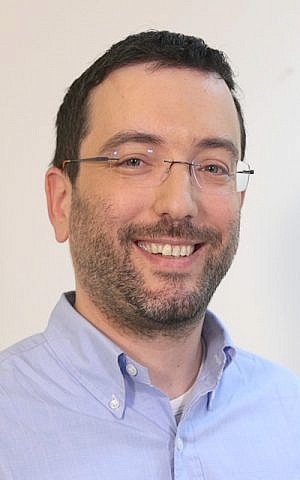An oncologist at Sheba Medical Center, the nation’s largest hospital, has worked with the Telesofia Medical startup to create tele-medicine software with which cancer patients can communicate with hospital doctors to deal with the side effects of chemotherapy at home.
The software will be the basis of a new pilot program in the oncology department at Sheba Medical Center in Ramat Gan, and will be offered to several hundred patients in the gastrointestinal oncology unit during the next few months.
Telesofia Medical is a developer of software that automatically generates personalized educational videos for patients and medical staff.
Sheba’s Dr. Benjamin Boursi, a cancer specialist at the clinical oncology and radiotherapy department, has worked with Telesofia to adapt its software to oncology patients. With some small changes, however, the software can be made suitable for use by any patient with a chronic or acute illness that needs monitoring, Boursi said in a phone interview.

The technology has the potential to empower patients, reduce unnecessary medical complications and increase the efficacy and efficiency of treatment, he said.
“There are all sorts of technologies to educate the patient,” he said. But this one is unique because it personalizes the video, the educational and follow up aspect.
“To my knowledge, this is the first of its kind program in the world,” he added.
Patients who agree to use the software meet with their physician and get a video about the disease, the treatment protocol and what needs to be done at home. The patients decide how they want to interact with their physician or nurse — by phone or by email. It is not an app, he explained, so there is no need to download anything.
There are two components in play, Boursi explained. “First we want to educate the patient about the disease and the treatment” and let them know what the steps ahead are. “But also, we want to follow up about both the physical and psychological side effects” of the treatment, he said.
“One of the biggest challenges for doctors is the absence of interaction with their patients in between visits,” he said. “A lot of critical information about the patients’ welfare, especially if they are taking medications, can fall through the cracks until their next visit.”
Through the program, patients are sent questions regarding how they feel and what the symptoms they are dealing with following chemo, for example. This provides the doctor with updates about how the patient is coping. If the side effects are standard, the patient gets a standardized response on how to deal with the symptoms. But if they are unusual, the doctor gets flagged and can contact the patient and ask them to come in.
“We should remember that even if we say everything to a patient during the initial meeting… patients remember approximately 20% of what you tell them,” he said.
Patients tend to forget instructions, but when they are asked specifically by the software about fever, nausea, pain, or other things, then they remember to report them to the physician.
“If we find the symptoms late,” that could lead to hospitalization or added clinic meetings, he said. “So, it actually saves work” for the clinician and is very important for the patient. Once the physician gets information about what happens with the patient between visits, when the patients arrive for their visit to the clinic the physician already has a report of what happened in the intermediary period, and that make the meeting more effective and efficient, he said.
The personalized program, which is part of a digital tele-medicine transformation happening at Sheba, will provide the oncologists with “vital information, as well as create a new bridge between doctors and their patients,” he said.
While the pilot is running, for one or two months, Telesofia and Boursi will tweak the software according to the feedback they gets from users, and will see whether patients use it easily.
Rami Cohen, CEO of Telesofia Medical, said the technology underscores the importance of a holistic view of the “patient needs, patient-centricity and patient empowerment, both while in the hospital and between visits.”
Telesofia and Sheba hope to also start measuring the impact the new system has on the patient’s quality of life and clinical outcomes, in clinical studies, Boursi said.
[“source=timesofisrael”]

